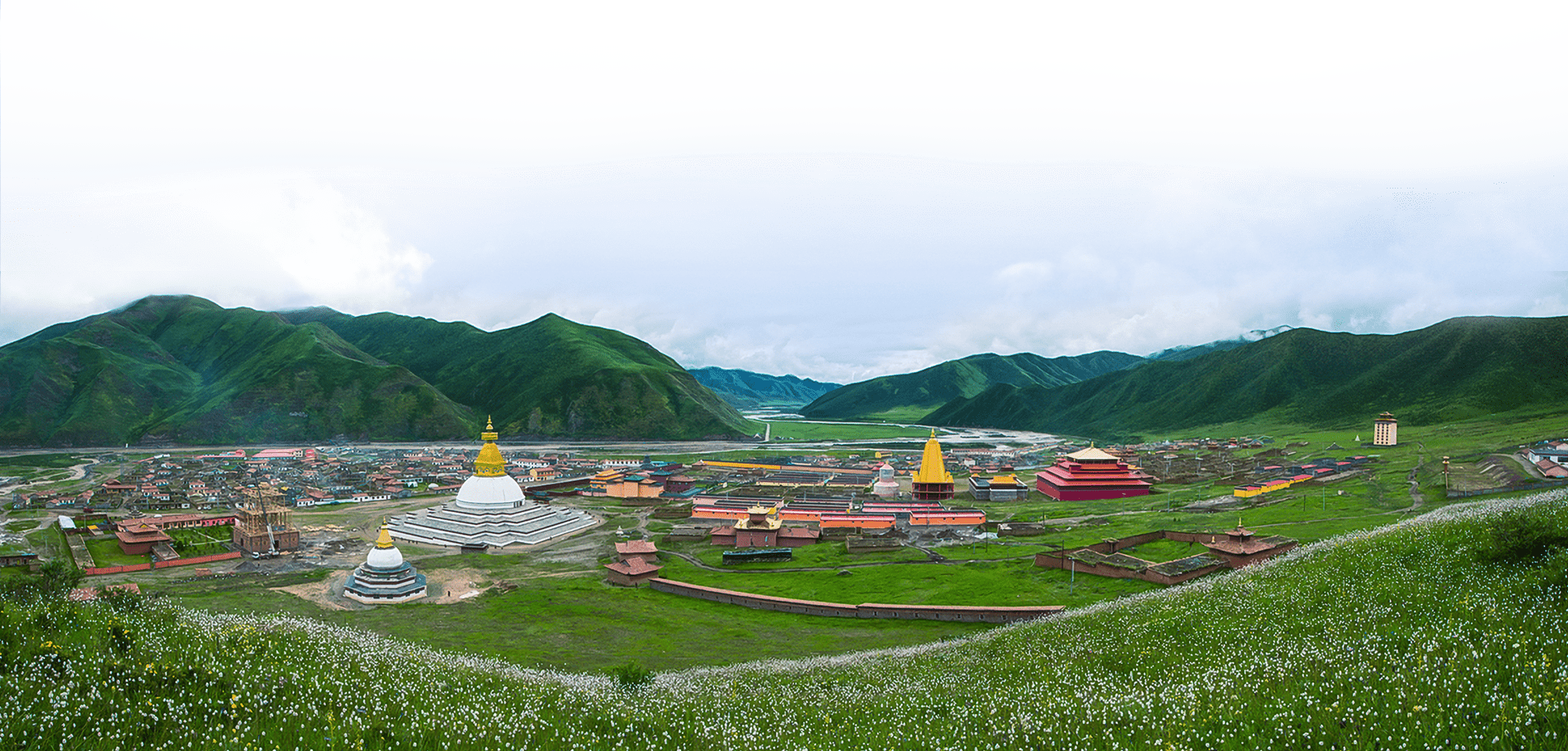VIDYADHARAS*
4.12.2022, Zoom
(excerpt)
The name is “The Sound of the Vidyadharas”, “Laughter of Vidyadharas”, or the “The Melodious sound of the Laughter “, we could say the sound of the Vidyadharas. But the sound is the Laughter, the Laughing sound, which means something special, precious sounds of the laughter, of the Vidyadharas. And then Vidyadharas, of course, means the noble ones, the high beings, high masters. So, this is the meditation of the teaching of Longchen Nyingthig practices. All the Vidyadharas of this lineage are very great, compassionate and have wisdom, and Mahasiddhas, so therefore they called Vidyadharas. Vidyadhara basically means the one who’s able to hold the teachings of the essence or the nature of the mind, who’s realized the nature of the mind, who became enlightened through realizing the nature of the mind. They are the Vidyadharas.
So, Vidyadharas is another way of calling the Lineage Masters. They are not just master, but great masters, very accomplished masters on the path of liberation, on Dharma practice. Any teacher, any person, who has students, we sometimes called them master. But this master has a different meaning: It’s the Master because of their realization on emptiness of the mind, nature of the mind, so therefore Vidyadhara is something with very special meaning and special name.
And now the Vidyadharas of the three Lineages. There is the mind lineage of the Buddhas, the symbol lineage of the Vidyadharas, and the oral lineage of individuals – these three groups have their own ways of to teach. Buddhas had their own ways of teaching to each other. And Vidyadharas also have their unique way of teaching. And also, ordinary people like us, we have our own way to receive teachings and to teach to others. So, there are three ways of giving the instructions of the nature of the mind on the emptiness. So, because of those three ways, there are three Lineages.
The Lineage – it should be unbroken lineage for the teachings of the Buddha, of the five Buddha’s families, of Padmasambhava or Guru Rinpoche. But we need a non-stopping Lineage. The way or the source of the teachings coming from Buddha up to us without being broken is called Lineage, like Longchen Nyingthig Lineage. This goes up to like Buddha Samantabhadra here, and five Buddha families, and Vidyadharas like Garab Dorje and Guru Rinpoche, and down to us through these different great, compassionate masters. Because of their compassion, their wisdom, their practice, they are able to hold these teachings until now without being broken. So, the strength or the non-stopping, non- broken way to us from Buddha, how to practice and the instructions – this is called a lineage. And it’s very important to have Lineage, and for any Dharma practices because all the 84,000 teachings of the Buddha, of course come from Buddha and they come until now through different masters. And they brought this lineage, this teaching to us in a very pure way. And they sort of put a lot of energy and work very hard to bring these teachings from the Buddha out to us. And these works, that energy, that meaning is called the lineage.
This is a book that I wrote and that we are going through. Everyone knows that I showed a brief explanation of the preliminaries for the Dzogchen Longchen Nyingthig. Of course, Dzogchen Longchen, or Dzogchen Nyingthig, I would say Dzogchen Practices or Longchen Nyingthig practices means very bright, very great. But this is a brief explanation specifically to the Book of “The Word of my Perfect Teacher” and how I wrote this book is that I studied, of course, and I practiced on this book, Patrul Rinpoche’s book, of course it’s a basic book, basic foundation for all the Nyingma practitioners, including me, right? It’s very important book and we everyone studies this and everyone hear the teaching and thinking of the teaching and meditate on the teachings. This book is a very important foundation for the Nyingmapa Dharma practice. Lama Sang and other great masters, they teach “The Words of my Perfect Teacher” a lot. It’s very common, popular, and as in Nyingmapa, especially the practitioner should receive the teachings, something like that. If you don’t have or receive that teaching, if you don’t see this important then you are out of something and you’re not in this, uh, this group or something like that. It’s a very important book. And therefore, I can say that I was very fortunate to be able to receive the teaching, the great book composed by Patrul Rinpoche. And of course, I studied this and then I also read many other books related to preliminary practices [there is a connection to the Ngondro book of Gampopa]. And this is how I wrote: I brought many essences and important notes of “the Words of my Perfect Teacher” into this book. There are many great masters, great khenpos from Nyingma Lineage have taken notes when they received teachings from “the Words of on my Perfect Teacher”. They have taken very importantly clear notes and I brought some essences from those notes into this book. Therefore, this book includes many essences of other masters and studies on the book “The Word of My Perfect Teacher”.
The great master from Kagyupa Lineage, Milarepa, Gampopa, also wrote a commentary on preliminary practices, which is called “Jewel Ornament of Liberation”. That book is a kind of very complete, beautiful book. And some of the books you probably not know, some of the notes from Khenpo Ngakchung. There’s a very great Khenpo called Ngakchung from Katog Lineage who very famous in Tibet, a very famous and great Master in my Lineage. He also took some notes on the book “The Words of my Perfect Teacher” and they’re very good. So, our book is based on all of these teachings composed by great Masters. Therefore, even though my understanding is limited, the book is short, not great, but because of the source of this book, they’re great. So, I think this book can be very useful and show you some things that are correctly. Therefore, I think that there is nothing wrong, at least nothing wrong to use this book to study for your Dharma foundation.
End of excerpt on 4.12.22
Transcript by Tri Minh Tara & Dieu Hue.
Excerpt from MP 3 Hungkar Dorje Rinpoche teaching 4.12.2022: https://drive.google.com/file/d/1u8qNs14Y7hcNgpNixXtJR56-3mWIdslX
Full English version: https://docs.google.com/document/d/11x3iwFAvdgH_EX5f4VJ9oMZWNZ49lv7p/
_______________________________________________
* This is an excerpt from the teaching given by Hungkar Dorje Rinpoche on Zoom on December 4, 2022. This excerpt has omitted parts about the organization of the lessons. The title is created by the translator for the convenience of the reader.









